

So what is a roguelike? In a nutshell, "roguelike" means "a game like Rogue." Simple, right? But what does that mean, exactly? Well, the original Rogue was designed as a sort of networked single-player video game experience, and it introduced a number of fresh ideas and elements to the RPG genre. Many of its inspirations came directly from Dungeons & Dragons, but everything Rogue did was intended to make its world tremendously hostile, thus forcing players to approach their quest with extreme caution. And even then, random elements could conspire to ruin even the most precise player's efforts, sending them back to the very beginning to start all over.
Its daunting, unforgiving nature made it a tough game to take up... but in those early days of gaming, there was nothing else quite like it. And because it was largely targeted toward computer science students, its sheer complexity and difficulty made it a test of skill and intelligence than its intended audience simply couldn't resist. Rogue became an underground phenomenon, sparking countless imitators. Eventually, it even went mainstream, inspiring an entire subgenre. The recent explosion of independently developed games has given the roguelike even more traction, allowing designers to explore the concepts of the format without the need to worry about popular appeal. Which, ironically, has led to some incredibly popular (if not wholly faithful to the tenets of Rogue) results, such as Spelunky.
Long story short, a roguelike generally features the following traits:
Now, let's look at the games themselves, beginning with...
The classic roguelikes. Dense, complex, and unforgiving — these same traits make the old games both ridiculously difficult to master and insanely satisfying once conquered.
Rogue
Michael Toy/Glenn Wichman/et al. | PC | 1980
Obviously, this is where it all began. Created in the early 1980s, it became a perennial favorite on college networks due to being free to play, accessible on dumb terminals like you'd find in a college library or computer lab, and madly addicting. Basically, all the traits that define Roguelikes began here, and you can find faithful clones of the game for practically every modern operating system.
NetHack
The Dev Team | PC | 1987
Considered by many to be the ultimate roguelike, NetHack is notable for its sheer inclusiveness. The rule of thumb in NetHack is "the Dev Team thought of everything," and with its huge array of character classes and monsters, you can perform a shocking number of complex maneuvers... like using the corpse of a basilisk to stone an enemy, but only if you use gloves to keep the basilisk from stoning you. One of the most intricate and challenge video games ever made.
ADOM
Thomas Biskup | PC etc. | 1994
The creators of ADOM (Ancient Dungeons of Mysteries) sought to create a hybrid of Rogue and more classic RPGs, which means that unlike other classic roguelikes, ADOM features numerous side quests, multiple separate areas to explore, and even an overarching plot. But it still plays like a roguelike, meaning the process of completing those tasks is a doozy.
Angband
Angband Development Team | PC etc. | 1990
Named for the evil fortress in The Silmarillion, Angband draws heavily on the works of J.R.R. Tolkien for its bestiary and inventory. A vast and sprawling adventure in which, true to its origins, months of effort can be undone in a single turn.
Dungeon Crawl Stone Soup
DCSS Devteam | PC etc. | 2006
Of all the classic roguelikes, Stone Soup is by far the best entry point for the newcomer. Not only does it offer visuals more advanced than pure ASCII, it's also designed to be carefully balanced to feel fair and accessible to new players — probably a reflection of its vintage. As the youngest of the popular PC roguelikes, it was constructed in an era in which friendliness to players had become a concern for game makers.
If the classic PC roguelike seems too intimidating, it's worth considering taking the lighter approach of a console outing. The best console roguelikes all belong to the same family: Chunsoft's (now Spike Chunsoft) Mystery Dungeon series, which began as a Dragon Quest spinoff and took on a life of its own.
Pokémon Mystery Dungeon
Chunsoft | Nintendo | GBA/DS/3DS | 2005-2013
As you might expect, this is literally baby's first roguelike. Lacking any difficulty at all until the post-game, the Pokémon Mystery Dungeon games demonstrate that danger is what makes roguelikes interesting. But boring as they may be, they make effective training wheels for the genre's rules.
Etrian Mystery Dungeon
Spike Chunsoft (with Atlus) | Atlus | 3DS | 2015
This is more like it. The newly released Etrian Mystery Dungeon adapts the classes and concepts of Atlus' Etrian Odyssey series into an inventive hybrid between two different styles of dungeon crawler. It breaks a lot of roguelike rules, but it's interesting... and challenging, too.
Chocobo Mystery Dungeon
Chunsoft/h.a.n.d. | Square/Square Enix | PS1/Wii | 1997-2007
For those who prefer their crossovers a little more mainstream, Chocobo Mystery Dungeon incorporates familiar elements of Final Fantasy without being as toothless as Pokémon Mystery Dungeon. And it's the cutest take on Final Fantasy, too.
Mystery Dungeon: Shiren the Wanderer
Chunsoft | Sega, Atlus | Super NES/Wii/DS/PSP/Dreamcast | 1995-2015
The "true" Mystery Dungeon games are still the best. The Shiren titles are deep, complex, and packed with secrets — the high-water mark for console roguelikes. If you want to see what all the fuss is about, the Game Center CX/Retro Game Master episode (available in the U.S. on the Retro Game Master DVD) featuring the original Shiren is a great introduction!
These games break a lot of roguelike rules, but they still draw on Rogue's concepts. By combining roguelike mechanics with other genres, they make the notion of randomization and permadeath more accessible. Consider these your training wheels.
Spelunky
Derek Yu | Mossmouth | PC/Xbox 360/PS3/PS4/Vita | 2007-2014
The king of roguelike-inspired games, Spelunky brilliantly combines the genre with the crazy hardcore design of Tim Martin's PC classic Spelunker. You control a little man (or woman, or dog) making his way into randomly generated caverns in search of treasure. It's evil and abusive, but incredibly addicting.
The Binding of Isaac
Edmund McMillan | Nicalis | PC/PS4/Vita | 2011-2015
Imagine The Legend of Zelda meets a bullet-hell shooter. Now add in gross-out visuals and the randomization and general cruelty of roguelikes and you have a strange but intoxicating creation that tests your reflexes, your wits, and your luck all at the same time.
Rogue Legacy
Cellar Door Games | PC/PS4/Vita/Xbox One/PS3 | 2012-2014
This randomly generated Castlevania-inspired platformer will kill you over and over again, but that's OK because when you die your hero or heroine's children will take up the battle, carrying forward your family's legacy and genetic traits.
F.T.L.: Faster Than Light
Subset Games | PC etc. | 2012
More of a real-time strategy game than a roguelike, FTL nevertheless makes use of many of the genre's concepts, from the random layouts of the galaxy to the unpredictable nature of the ships you meet to the possibility of a total wipeout that sends you back to the start.
Dungeon of the Endless
Amplitude Studios | PC | 2014
And here we see the roguelike meet a tower defense game, sending players into a series of seemingly endless corridors in search of great to repair their ship and let them escape back into space. Along the way, you can manipulate ancient machines and arrange power conduits to help even the odds and set the environments in your favor.
And finally, there are a few notable Rogue-inspired games that stray a bit further from the genre but still manage to scratch the same itch as a great roguelike.
The Diablo series
Blizzard | PC/PS1/PS3/PS4/Xbox 360/Xbox One | 1997-2014
With its randomly generated dungeons, Diablo was heavily influenced by Rogue. Playing in Hardcore mode opens up the possibility of permanent death, bringing it even closer to its roots... though still decidedly its own thing, what with the whole multiplayer element.
Dark Souls series
From Software | Bandai Namco | PS3/PS4/Xbox 360/Xbox One/PC | 2012-2015
While it lacks permanent death and randomization, instead focusing wholly on learning the world and performing consistently, Dark Souls carries with it the same ominous atmosphere, tension, and danger as a roguelike. Even though it lacks permanent death, dying nevertheless carries consequences — and greater consequences than simply going back to the last save point. Its play mechanics have been designed specifically to create anxiety and force players to learn the rules of the game world.
Perhaps you could say Dark Souls is the roguelike of action games.
ToeJam & Earl
TJ&E Productions | Sega | Genesis | 1991
A funky cooperative action game lacking any real combat, ToeJam & Earl for Sega Genesis nevertheless featured the same randomization and item ID elements as a classic roguelike, introducing those concepts to an entire generation of hip-hop loving console fanatics.
Dwarf Fortress
Bay 12 Games | PC etc. | 2006-2015
And finally, we come to one of the most complicated games ever made. Dwarf Fortress is like a roguelike combined with Civilization mixed with SimCity, placing you in charge of a small city of dwarves under siege by countless threats. Once you've mastered the intricacies of ADOM and Angband, why not step up to a real challenge?
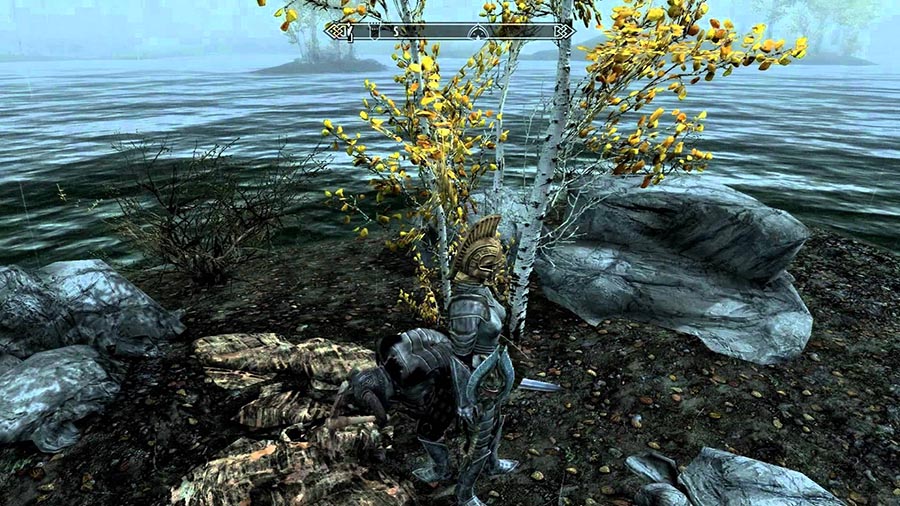



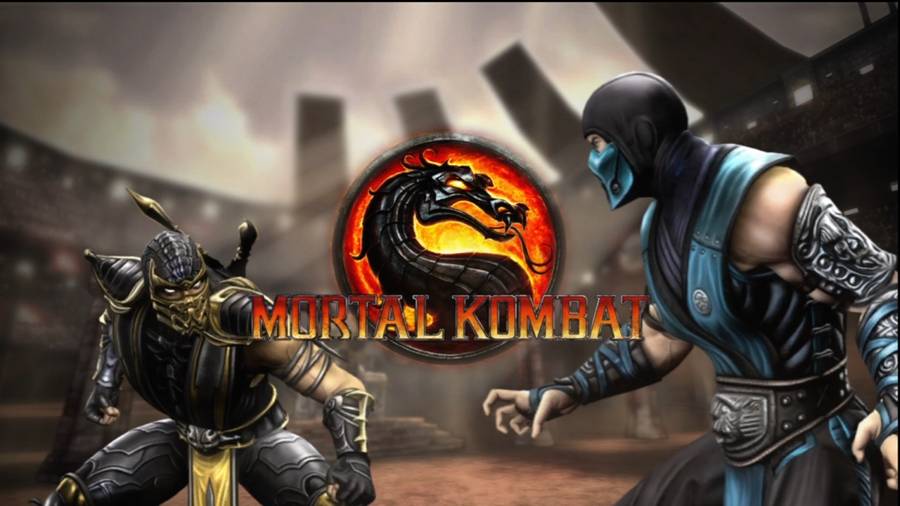 Mortal Kombat 9 Alt Costumes
Mortal Kombat 9 Alt Costumes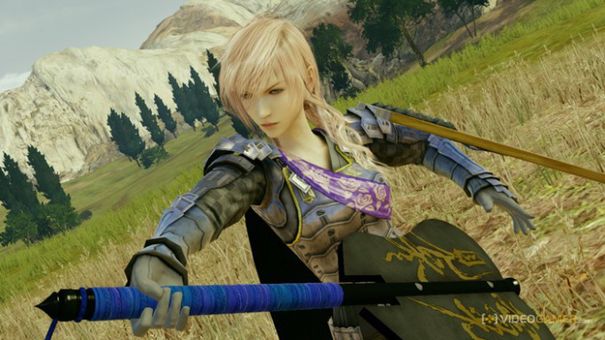 Lightning Returns: It’s About Time
Lightning Returns: It’s About Time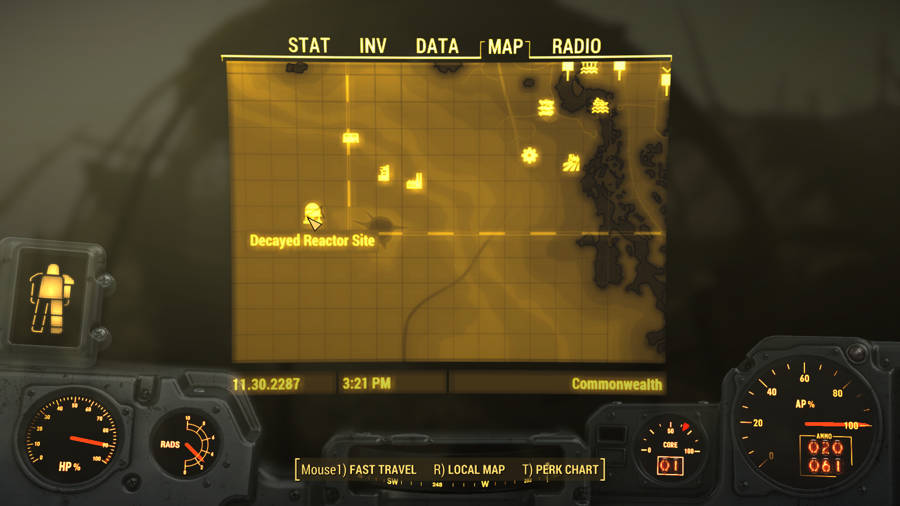 You Can Go Off The Map In Fallout 4 And This Is What You Find
You Can Go Off The Map In Fallout 4 And This Is What You Find . Plays February 19, 2012
. Plays February 19, 2012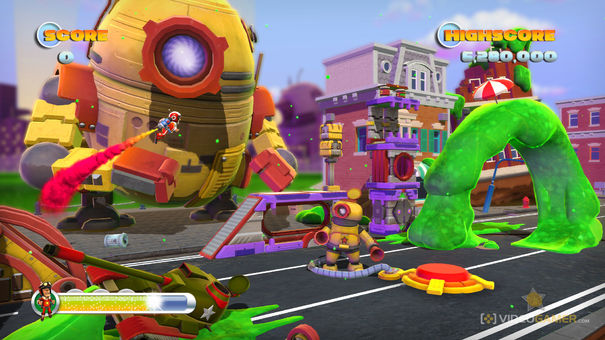 The best downloadable games on their way to consoles
The best downloadable games on their way to consoles